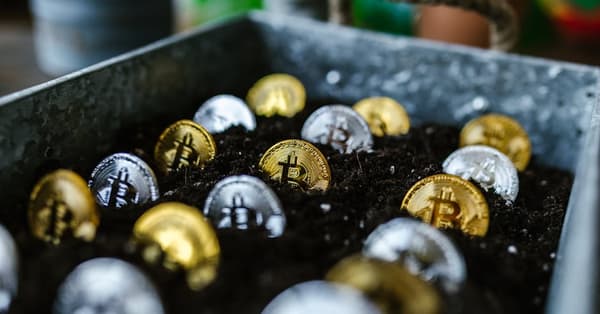Unlocking Binance Smart Chain: A Beginner's Guide for 2025
Curious about Binance Smart Chain? Discover how to navigate the DeFi landscape and make the most of this booming platform in 2025!
The Binance Smart Chain (BSC) has quickly established itself as a powerhouse in the decentralized finance (DeFi) sector. As of Q4 2024, BSC has experienced an astonishing rise in transaction volume, with over 15 million daily transactions and a user adoption rate that has surged by 50% year-on-year. Recent partnerships with major crypto exchanges have further cemented its position in the blockchain ecosystem.
If you're diving into the world of crypto in 2025, understanding BSC is essential. With transaction fees significantly lower than Ethereum's—averaging around $0.20—and processing speeds that can hit 3 seconds per block, BSC offers an enticing alternative. Plus, the growing number of decentralized applications (dApps) on the platform opens up exciting investment opportunities.

In this guide, you’ll explore BSC’s architecture, learn how to get started, and discover advanced strategies to navigate this dynamic blockchain landscape.
🎯 KEY INSIGHT
As of October 2023, BSC hosts over 1,500 dApps, highlighting its diverse ecosystem and enormous growth potential.

Binance Smart Chain is a blockchain network running parallel to Binance Chain, designed specifically for smart contract functionality. It employs a unique consensus model called Proof of Staked Authority (PoSA), blending elements of both proof-of-stake and proof-of-authority.
1.2 Key Features That Make BSC Stand Out
- Low Fees: Transaction fees on BSC are well below those of Ethereum, making it an appealing choice for developers and users alike.
- Cross-Chain Compatibility: BSC allows seamless interaction with both Binance Chain and Ethereum, boosting its usability.
- High Throughput: With an average block time of about 3 seconds, BSC enables fast transaction processing.
- Robust Ecosystem: The BSC ecosystem is thriving, with numerous projects across DeFi, NFTs, and gaming.
1.3 How BSC Compares to Ethereum
- Transaction Speed: BSC's average block time is 3 seconds, while Ethereum typically averages around 15 seconds.
- Transaction Fees: On BSC, fees average $0.20, compared to Ethereum's variable fees that can soar above $30.
- Consensus Mechanism: BSC employs PoSA, while Ethereum is in the midst of transitioning from Proof of Work (PoW) to Proof of Stake (PoS).
2. Getting Started with Binance Smart Chain
...Tags:
Ready to Make Profitable Crypto Calls?
Check out our proven track record on the leaderboard
View Leaderboard →Related Posts
Is a $2 Billion Bitcoin Bet Opening Doors for Meme Coins?
Discover how a Bitcoin whale's massive investment could signal a new wave of opportunities in the meme coin market. Don't miss out on this insight!
Is MOBOX Leading the Blockchain Gaming Revolution in 2023?
Discover how MOBOX is shaping the blockchain gaming landscape amid a 340% rise in games this year. A must-read for every crypto enthusiast.
Understanding Token Burning on Binance Smart Chain
Curious about BSC's token burning? Discover how it impacts value and investor sentiment in this insightful look at deflationary tokenomics.
The Rise of Meme Coins: What’s Fueling the Surge?
Join us as we explore the explosive growth of meme coins like $PEPE and $DOGE. Discover why they're captivating traders worldwide.
Mastering Japan's Crypto Rules & Meme Coin Trends
Stay ahead in crypto! Explore Japan's new reserve rules and strategies for trading meme coins like SOL. Equip yourself for success in this dynamic market.
Unlocking Arbitrage: Flashloans in the BSC Boom
The Binance Smart Chain is witnessing a flashloan explosion! Discover how traders are capitalizing on new arbitrage opportunities amid rising volatility.